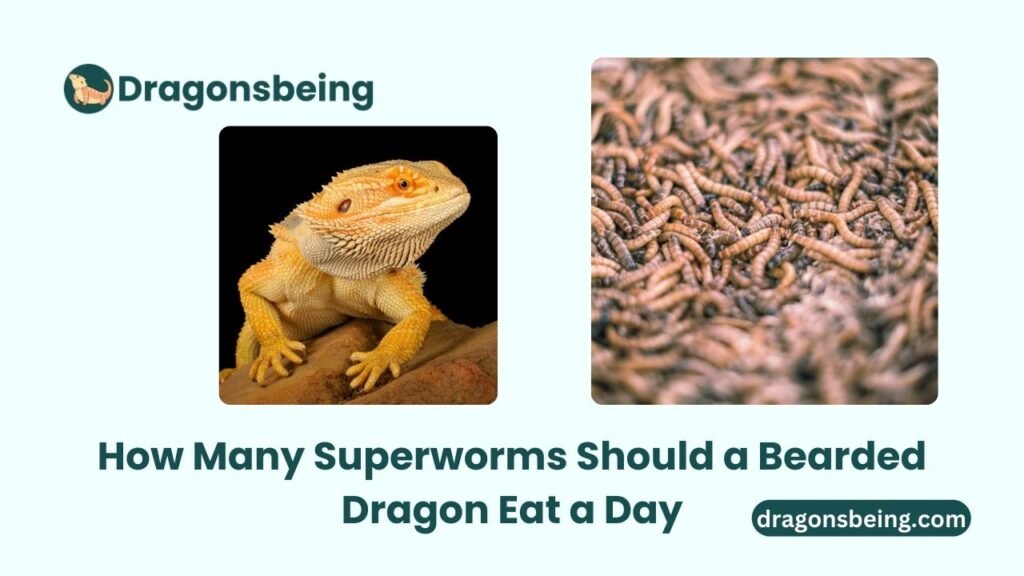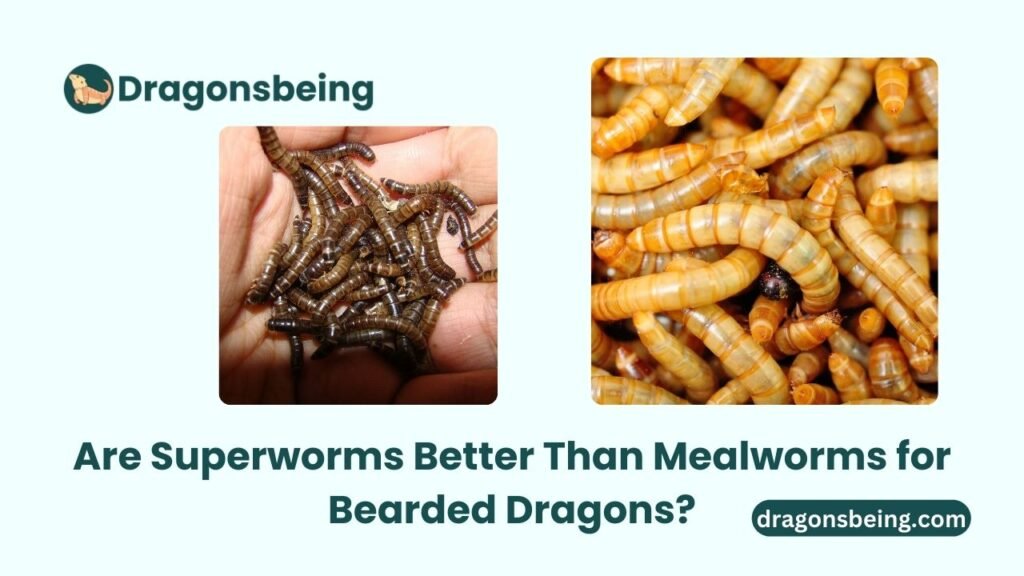Yes, bearded dragons can eat bananas, but only in moderation. Too much banana can lead to health issues due to its high sugar content.
Bearded dragons are popular pets for their friendly nature and unique dietary needs.
As omnivores, they thrive on a balanced diet that includes vegetables, fruits, and protein sources. Many owners wonder about the suitability of various fruits, including bananas.
While bananas provide some nutrients, they should not dominate a bearded dragon’s diet. High in sugar and low in essential nutrients, bananas can cause digestive issues if fed excessively.
Understanding the right balance in your pet’s diet ensures they remain healthy and vibrant. Always consult a vet for personalized dietary advice for your bearded dragon.
Bananas In A Nutshell
Bearded dragons often enjoy a variety of fruits. One popular fruit is the banana. It’s sweet, soft, and easy to eat.
But can bearded dragons eat bananas safely? Let’s explore the details.
Nutritional Content Of Bananas
Bananas offer several nutrients beneficial for bearded dragons. Here’s a quick look at their nutritional profile:
|
Nutrient |
Amount per 100g |
|---|---|
|
Calories |
89 |
|
Carbohydrates |
23g |
|
Fiber |
2.6g |
|
Protein |
1.1g |
|
Fat |
0.3g |
|
Vitamin C |
8.7mg |
|
Potassium |
358mg |
Bananas are rich in carbohydrates and potassium. They contain fiber and vitamin C. These nutrients can support a bearded dragon’s health.
Risks Associated With Bananas
Feeding bananas to bearded dragons has some risks. Too much sugar can lead to health issues. Here are some potential risks:
High sugar content may cause obesity.
Excessive potassium can affect heart health.
Feeding too often can lead to poor nutrition.
Bananas should be a treat, not a staple. Offer them in small amounts. Monitor your bearded dragon for any signs of discomfort.
Feeding Bananas To Bearded Dragons
Many pet owners wonder, can bearded dragons eat bananas? Yes, they can! Bananas are tasty and packed with nutrients. However, moderation is key. Feeding bananas correctly ensures your dragon stays healthy.
How Often To Feed Bananas
Bananas should be a rare treat. Too much banana can cause health issues. Follow these guidelines:
Offer bananas once every two weeks.
Use them as a reward for good behavior.
Mix bananas with other fruits for variety.
The Right Serving Size
Serving size is crucial for your dragon’s diet. A small piece of banana is sufficient. Here’s a simple guide:
|
Dragon Size |
Banana Serving Size |
|---|---|
|
Juvenile |
1/4 inch piece |
|
Adult |
1/2 inch piece |
Always monitor your dragon after feeding bananas. Look for signs of discomfort or digestive issues. Adjust serving sizes as needed.
Remember, balance is key. A varied diet helps your bearded dragon thrive!
Potential Health Concerns
Bearded dragons can enjoy bananas, but caution is key. Bananas have certain health risks. Understanding these risks helps you make better choices for your pet.
Sugar Content In Bananas
Bananas are high in sugar. This can lead to health problems for bearded dragons.
High sugar may cause obesity.
Excessive sugar can lead to diabetes.
Sugar affects energy levels negatively.
Limit banana treats. Offer them only occasionally. Always balance with low-sugar fruits and vegetables.
Calcium To Phosphorus Ratio
The calcium to phosphorus ratio in bananas is not ideal. This ratio is crucial for your bearded dragon’s health.
|
Food Item |
Calcium (%) |
Phosphorus (%) |
Ratio (Ca:P) |
|---|---|---|---|
|
Banana |
0.1 |
0.1 |
1:1 |
|
0.9 |
0.2 |
4.5:1 |
|
|
0.6 |
0.2 |
3:1 |
A 1:1 ratio in bananas is not balanced. A higher calcium ratio is better. This helps prevent metabolic bone disease. Offer calcium-rich foods more often.
Monitor your bearded dragon’s diet closely. Always consult a vet for the best advice.
Preparing Bananas For Your Bearded Dragon
Bananas can be a tasty treat for your bearded dragon. Proper preparation is key. This ensures your pet enjoys the fruit safely. Let’s explore how to prepare bananas effectively.
Proper Way To Cut Bananas
Cutting bananas correctly is essential. Here’s how to do it:
Start with a ripe banana.
Use a clean, sharp knife.
Slice the banana into small pieces.
Keep pieces around 1/4 inch thick.
Make sure the pieces are bite-sized.
This size helps your bearded dragon eat easily. Small pieces also reduce choking risks.
To Peel Or Not To Peel
Peeling bananas for your bearded dragon is a common question. Here are the facts:
Peeling is recommended.
The peel can be tough and hard to digest.
Peels may contain pesticides or chemicals.
Always wash the banana before peeling. This removes any harmful residues. A clean, peeled banana is the best option.
Alternatives To Bananas
Bearded dragons can eat bananas, but moderation is key. Offering a variety of fruits is essential for their diet. Below are safe fruit alternatives that can provide essential nutrients and keep your pet healthy.
Other Safe Fruits For Bearded Dragons
Many fruits are safe for bearded dragons. Here is a list of some beneficial options:
Strawberries: Rich in vitamin C.
Blueberries: High in antioxidants.
Mango: Provides vitamins A and C.
Papaya: Supports digestive health.
Peaches: Good source of vitamins and fiber.
Fruits should be fresh and chopped into small pieces. This helps your bearded dragon eat easily. Avoid fruits with high sugar content for daily feeding.
Incorporating Variety Responsibly
Variety is important in a bearded dragon’s diet. It prevents boredom and promotes health. Here are some tips:
Rotate fruits weekly.
Mix fruits with leafy greens.
Introduce new fruits slowly.
Watch for any allergic reactions.
Always wash fruits thoroughly before feeding. This removes pesticides and dirt. Use fruits as treats, not as main meals. Balance is crucial for a healthy diet.
Monitoring Your Bearded Dragon’s Health
Monitoring your bearded dragon’s health is essential. Proper nutrition plays a key role. Bananas can be a fun treat, but moderation is critical. Watch for signs of dietary issues to ensure your pet thrives.
Signs Of Dietary Issues
Bearded dragons can show various signs if their diet is off. Here are some common indicators:
Lethargy: Reduced energy and activity levels.
Weight Loss: Noticeable decrease in body weight.
Loose Stool: Diarrhea or abnormal feces.
Color Changes: Dull or faded skin colors.
Appetite Changes: Loss of interest in food.
Keep a close eye on these signs. Early detection can prevent serious health issues.
When To Consult A Vet
Consult a veterinarian if you notice any of these signs:
Persistent lethargy that lasts more than a day.
Rapid weight loss within a short period.
Diarrhea that lasts more than 24 hours.
Changes in skin color that do not improve.
Refusal to eat for more than two days.
A vet can provide guidance on nutrition and health issues. Regular check-ups help maintain your bearded dragon’s well-being.
Frequently Asked Questions
Can Bearded Dragons Eat Bananas Safely?
Yes, bearded dragons can eat bananas in moderation due to their high sugar content.
What Nutrients Do Bananas Provide For Dragons?
Bananas offer potassium, vitamin C, and fiber, but should not be a staple food.
How Often Can Bearded Dragons Eat Bananas?
Limit banana treats to once a month to avoid health issues from excess sugar.
Are There Any Risks In Feeding Bananas?
Yes, excessive banana consumption can lead to obesity and digestive problems.
Can Baby Bearded Dragons Eat Bananas?
It’s best to avoid bananas for baby dragons. Stick to leafy greens and insects instead.
What Is The Best Way To Serve Bananas?
Slice bananas into small pieces and mix with other fruits or vegetables for variety. “`
Conclusion
Bearded dragons can enjoy bananas as an occasional treat. These fruits offer some vitamins but should not be a staple in their diet. Balance is key for their health. Always prioritize leafy greens and insects. Consult with a vet for personalized dietary advice to keep your pet happy and thriving.

Hi, I’m Dr. Michelle Mayers, a veterinary professional with a deep passion for animal health and well-being. Over the years, I’ve dedicated my life to caring for animals and helping pet owners better understand their furry, feathered, or scaly companions. On my blog, Dragonsbeing, I share insights, tips, and stories that aim to educate, inspire, and connect with fellow animal lovers. Join me at Dragonsbeing as we explore the fascinating world of veterinary care and celebrate the special bond between humans and animals!


